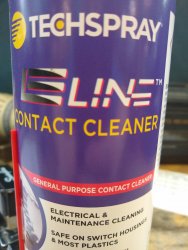- Joined
- May 16, 2019
- Messages
- 126 (0.06/day)
- Location
- Virginia
| System Name | monkymachine |
|---|---|
| Processor | i5-3570k or i5-2600k, haven't decided |
| Motherboard | MSI B75A-IE35 |
| Cooling | Air |
| Memory | DDR3 1333mhz 8 x 2 |
| Video Card(s) | Rx 580 Red Devil 8GB |
| Storage | 500GB SSD |
| Display(s) | Generic Monitor at 1280 x 1024 |
| Case | Rosewill - Black, Hot-Dipped Galvanized Steel ATX Mid Tower Computer Case with 500W Power Supply - R |
| Power Supply | 500w Rosewill (See case for further info) |
| Mouse | Generic Dell Mouse (Yes, I know I'm lacking) |
| Keyboard | Generic Keyboard |
| Software | Windows 10 Professional |
| Benchmark Scores | N/A |
That's disgusting, I can imagine the hundreds of ring marks left by the drinks. I don't care about what my case looks like, but it better not be dirty.I set my drinks on top of my PC case... but I also don't use open cups. However, even if something did totally spill, it would be pretty hard to get it in the computer.



 That's how the beer got the PC tipsy
That's how the beer got the PC tipsy 




 It is great for dissolving many resins. And I note most PCBs are sprayed with resins to prevent moisture from getting into the substrates and to help prevent oxidation/corrosion. Also note some plastics are affected by isopropyl alcohol too. This is why I suggested and recommend using
It is great for dissolving many resins. And I note most PCBs are sprayed with resins to prevent moisture from getting into the substrates and to help prevent oxidation/corrosion. Also note some plastics are affected by isopropyl alcohol too. This is why I suggested and recommend using 
